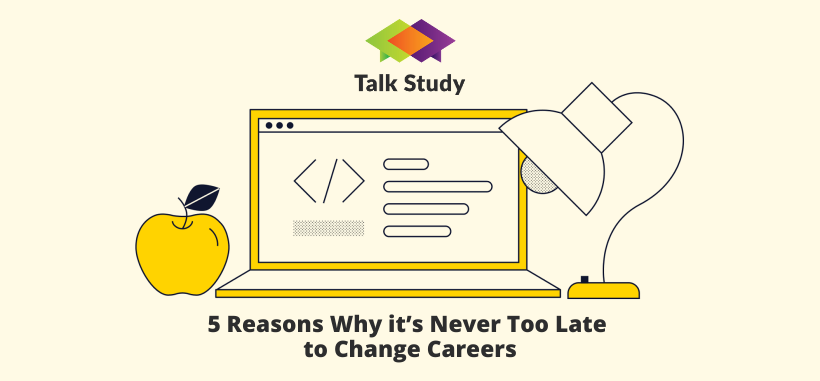More and more people are leaving their jobs in search of better opportunities, a change of pace, better pay, or more flexibility. And, for some, even though they’ve been doing the same job for many years, switching to a new career brings something money can’t buy: personal fulfillment.
But, some people think that because they’re not in their 20s and fresh out of college, the job market isn’t open for them. Luckily, this isn’t true, especially when it comes to tech jobs.
Read on to learn why age isn’t a significant factor in the tech sector and how having many years of experience in the workforce can be a powerful asset in landing your career-changing job.
1. Age is nothing. Getting the job done is everything
With the emergence of disruptive technologies and business models, organizations today need solid results to keep pace with the rest of the market. This requires people who can get the job done. It doesn’t matter if you have a college degree, if you’re young, or if you’ve been around a few years — if you can produce results, you’re marketable.
This is particularly true for tech professions. Coding skills don’t come with an expiration date, and older programmers can bring skills and experience to the job that younger workers lack. If you know how to address the needs of a business using code, you can land a great job with impressive pay.
The key is first to learn the skills you’ll need to do your job, then practice them, and then develop a portfolio. In most cases, you can build your portfolio while you’re learning to code.
For example, in any of the courses listed below, you’ll have the opportunity to complete projects that you can include as examples of your work in your portfolio. Plus, referencing these projects is a great way to illustrate your skills in an interview.
2. Your years in the workforce can be an asset
With age comes valuable experience — experience that can’t be earned in a classroom. And regardless of how much work someone does when starting out, there are some skills that you can only develop over time and in different circumstances.
Take soft skills as an example. Soft skills are those you use to solve complicated problems and collaborate with your teammates. These skills are important as, depending on your role, you’ll likely be working with other teams and departments as you build software. Plus, soft skills are transferable — so all your experience with problem-solving and collaborating will apply to your new career.
3. Experience working with different teams
In the tech world, the team atmosphere is often the go-to structure. When checking out new positions, highlight the experiences you’ve gathered from working with professionals from varied backgrounds. Here are some skills you can mention during your interview or consider including on your resume :
- Adjusting to different types of people
- Understanding the strengths of people from different cultures
- Knowing how to navigate complicated conflicts
- Understanding how to remove personal feelings from a situation and knowing when they can be an asset
- Knowing how to make different kinds of stakeholders happy
4. Experience solving problems
Problem-solving is at the heart of the tech industry. This applies to coding, network design, cybersecurity, machine learning, and virtually every other discipline.
In any tech job, your responsibility is to use technology to meet a goal or address a need. Knowing how to approach different kinds of problems can go a long way towards making you an effective team member.
For example, even if your technical experience is limited right now, you may have a wealth of knowledge when it comes to:
- Solving problems from a higher-level perspective by keeping big objectives in mind while developing solutions.
- Addressing small issues in a way that enables the larger solution to be more successful — understanding that the devil is sometimes in the details.
- Creatively approaching a situation using different or unexpected tools.
- Thinking outside the box when you need a solution that fixes a new issue.
5. Experience handling changes
Change is central to the tech industry, and if you’re interested in pursuing a career in tech, adapting to both personnel and technology-based changes will be necessary. Here are some reasons why a more experienced professional may handle these changes better than someone who is newer to the workforce
Personnel changes
When a new team member joins your squad, it can come with its own challenges. But with years of accepting and learning from new players, an older individual may adapt faster than others.
This holds true whether the personnel changes are horizontal or vertical — involving people you work alongside or those you report to. For instance, the transition can be tough when a new supervisor joins the team and has a very different management style than you’re used to. But, the skills needed to adjust are generally the same — regardless of the industry or discipline you’re working in.
Your ability to adapt to changes can make you a powerful asset in a tech job. This includes when a company has to outsource an element of their tech to a service, such as a cybersecurity company or a software provider. The ability to work well with new faces and minds can make you a valuable team member.
Changes in technology
No one understands the need to adjust to new technologies and people more than those who’ve been in the workforce for many years. With so many new technologies introduced into your personal or professional life, you’ve learned valuable skills that have helped you adapt to technical and other changes.
For instance, when iOS first came out, it was different for everyone, but soon, people were swiping and long-tapping their way through new apps and processes like it was second nature. The older you are, the more adjustments you’ve had to make, and this is an asset that’s not easy to come by without many years of experience.






Recent Comments